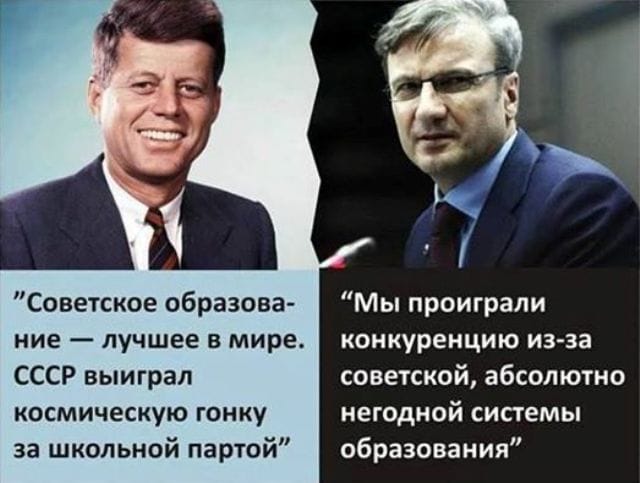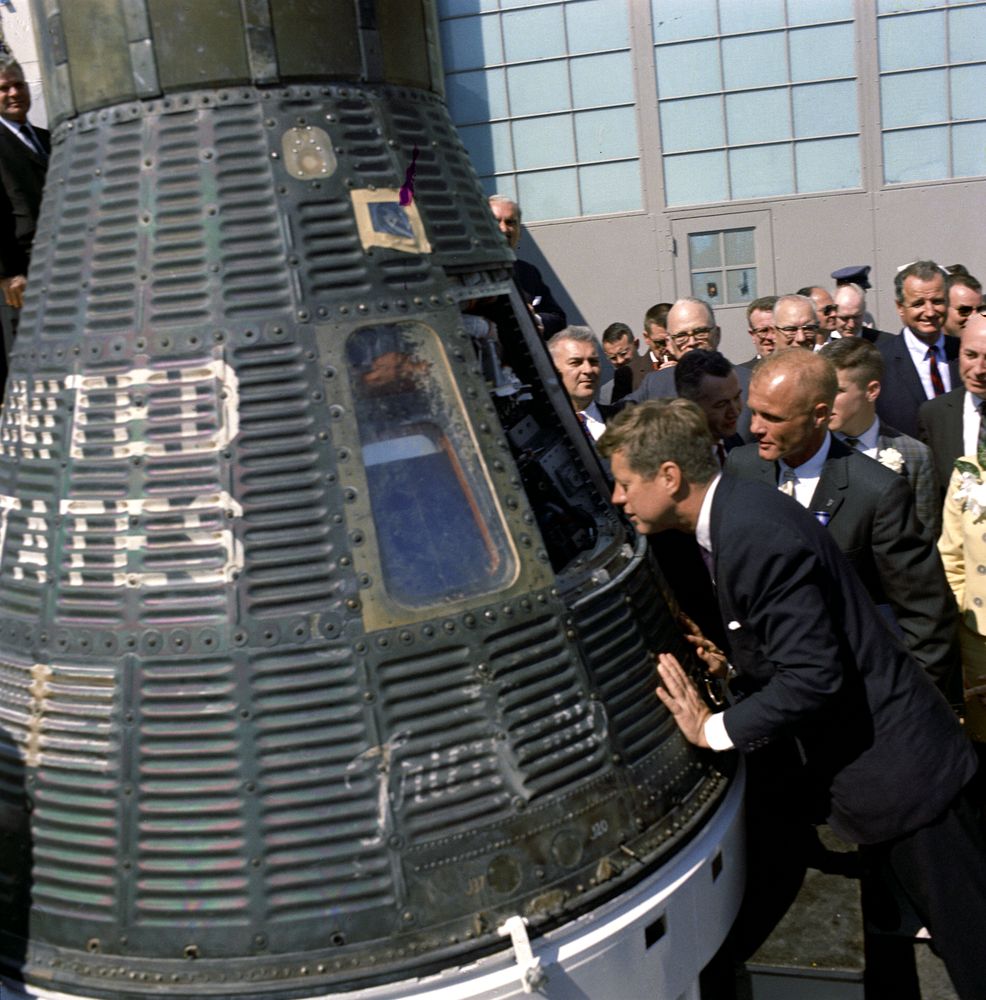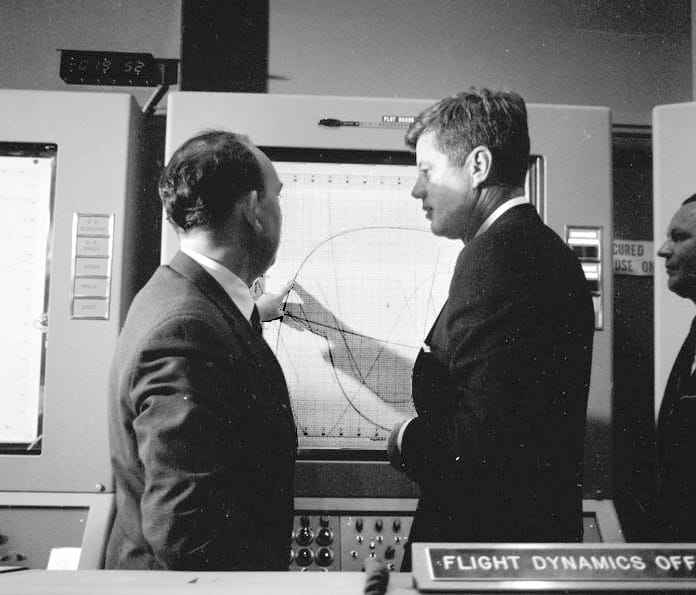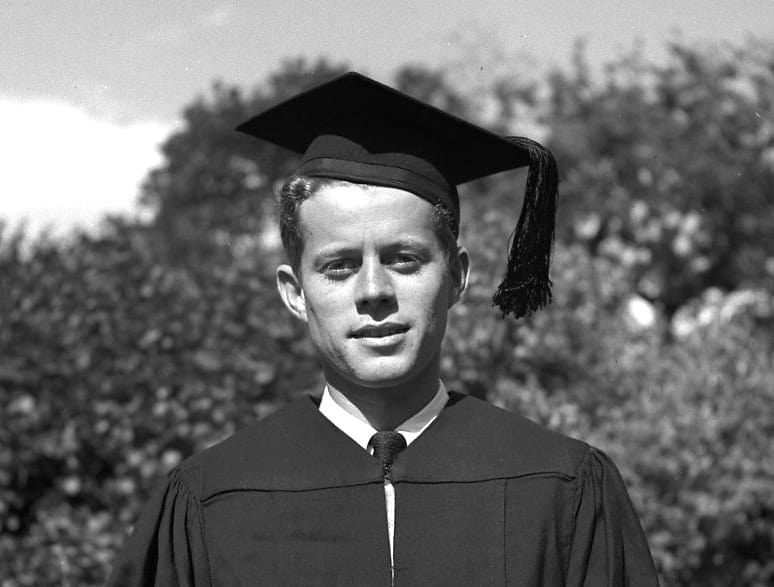Many opponents of the Unified State Exam and other innovations of the 21st century often quote John Kennedy, who allegedly recognized the primacy of the USSR in the field of education. We checked to see if the former US President really said that.
Many critics of the Unified State Exam, the Bologna system and the modernization of education in Russia reason about the superiority of the Soviet system. In support of their opinion they lead words allegedly said by the 35th US President John Kennedy: “Soviet education is the best in the world. We have to take a lot from it. The USSR won the space race at a school desk.” This phrase is quoted Media, authors books, teaching aids on pedagogy and scientific works. Rector of Moscow State University Viktor Sadovnichy mentioned Kennedy's words as proof that the level of school education, in his opinion, has fallen not only in Russia, but throughout the world, including the USA. Kennedy's quote is also popular among bloggers And users social networks, which are often lead her in contrast to the statement of the Chairman of the Board of Sberbank and former Minister of Economic Development of the Russian Federation German Gref, who named the Soviet educational system is “absolutely worthless.”
When searching for keywords for a phrase on the RuNet, the search engine returns many variations of the phrase. Most authors do not indicate the original source, but some do describe the circumstances under which John Kennedy allegedly said such a phrase. We were able to find one of the earliest references to the fact that Kennedy allegedly recognized the primacy of Soviet education in material on the resource “Censor.net”, published in 2008. According to the version stated there, Kennedy allegedly recognized the victory of Soviet education in 1961, after Yuri Gagarin’s successful space flight. Although the meaning of the above statement is similar, the literal quote is still different from the phrase we are considering. “Soviet education won. Guys, we need to learn physics, otherwise we’ll have to learn the Russian language” and “Just as the Franco-Prussian war of 1870 was won by a Prussian teacher, so the race in space is won by a Russian,” the author of the article seems to quote President Kennedy.

IN publications 2012 on the portal “Renaissance. “Golden Age” also claims that Kennedy uttered a phrase about Soviet education in 1961: “When Yuri Gagarin was the first in the world to fly into outer space in 1961, US President Kennedy said that “... we lost to the Russians in space at a school desk.” And in 2013, Nobel Prize winner in physics, academician Zhores Alferov, claimed that Kennedy uttered the words about “the space race won at his school desk” back in 1957, after the launch of the first artificial satellite. At the same time, Alferov mentioned that Eisenhower (34th President of the United States) and Kennedy said this at the same time: “When we launched Sputnik, Eisenhower and Kennedy said that the Russians won the space race not at a rocket test site, but at a school desk.”
We were able to find the earliest mention of the full version of the quote in lectures Russian historian Vardan Bagdasaryan for November 2016. After this speech, Baghdasaryan began to often mention this statement in his publications. And it is in this formulation that the quote is most often found on the Internet by various authors.

The variety of wording and circumstances under which Kennedy allegedly uttered this phrase raises doubts about its verisimilitude. In the most complete collections We were unable to find a verbatim quote from the speeches, publications and decrees of this American leader, available on the website of the John F. Kennedy Presidential Library and Museum. Nevertheless, Kennedy did speak more than once about the role of Soviet education in the USSR’s successes in the space field. For example, in September 1960, then-Senator John Kennedy said: “For much of the 20th century, the world admired American science and education, which was second to none. Now it’s difficult to say how the future will turn out. The first spacecraft was Sputnik, not Vanguard. The first country to place its national symbol on the Moon* was the Soviet Union, not the United States. The first dogs to return safely from space were Belka and Strelka, not Rover or Fido or even Checkers**.”
*September 12, 1959 USSR launched automatic interplanetary station “Luna-2”, which reached the surface of the Moon and landed in the Mare des Mares. The station delivered to the Moon a metal hollow ball consisting of pentagonal pennants with the image of the coat of arms of the USSR and the inscription “USSR September 1959.” Inside the ball was explosives, which exploded upon impact with the Moon, and metal pennants scattered across the surface.

**The nickname Checkers is a reference to the famous speeches Richard Nixon 1952. Nixon was then accused of accepting illegal donations for his election campaign. In vindication, Nixon made a televised address to voters, saying that he had not used a single penny for personal gain, and his only personal gift was a cocker spaniel named Checkers, given to him by one of his voters: “My children adore this dog, and I want to say right now: no matter who says anything, we will keep Checkers.” So the speech went down in history as the “Checkers Speech.”
In October 1960, Kennedy's presidential rival Richard Nixon criticized him for a similar assessment: “Now that we have a presidential candidate—Senator Kennedy, for example—claiming again and again that the United States is second in space... In fact, the space score today is 28 to 8: we have had 28 successful launches, they have eight. When he declares that we are losing the championship in education to the USSR... I saw Soviet education, and I saw ours. And no, we are not losing. That we are second in science, because they may be ahead in one area or another. But in general, in science, we are far ahead of the Soviet Union and all other countries in the world.” Responding to Nixon's criticism, Kennedy explained, why, in his opinion, American education is inferior to Soviet: “Ten years ago we produced twice as many scientists and engineers as the Soviet Union, and today they produce twice as many as we do.”

Also in 1958, Kennedy, speaking about the Cold War, saidthat "the fight we are now engaged in will be won or lost in the classrooms of America." Kennedy then gave examples of differences in the Soviet and American systems, emphasizing the strengths of Soviet education: “Who has the better education system today - the USA or the USSR? Who will achieve victory? Why are the Russians winning now? <…> American schoolchildren undergo 12 years of education, while Russian schoolchildren study for only ten years. But in those ten years they receive more hours of training than Americans do in 12. They attend classes six days a week, ten months a year. They don't like the long summer holidays that our system developed in response to the needs of an agricultural society. They have approximately 17 students per teacher, we have 27. Apart from some choice in the study of foreign languages, they do not have elective subjects. The ten-year curriculum includes, without fail, five years of physics, five years of biology, four years of chemistry, one year of astronomy and ten years of mathematics up to trigonometry and elementary calculus. Few 12-year curricula in America cover as much material. <…> Russians produce ten times more engineers than they did several decades ago, and two and a half times more than the United States produces. They train and graduate more scientists. According to some estimates, within five years the USSR will have three times as many scientists and engineers as we have.” In conclusion, Kennedy summed up the disappointing conclusion: “In short, as Edward Teller solemnly noted, America has already lost the Cold War in science. If we start catching up now, we could regain the leadership position we had in the 1980s or even the 1970s. But the 1960s are already lost.” And in 1963, in a Special Message to Congress on Education, he again brought examples where the USSR was ahead of not only the United States, but also the rest of the world, and at the end he added: “The dedication of this nation to education is sufficient to surpass the achievements of any other nation or system.”
Thus, Kennedy really recognized that the USSR owed its successes in science and space to education. Nevertheless, Kennedy did not say the exact phrase that is most often used by many Runet users.
Mostly true
Cover image: John F. Kennedy at his Harvard graduation, 1940. Source: John F. Kennedy Presidential Library and Museum
Read on the topic:
- "Novaya Gazeta". “There is a great chance to beat the Soviets...” On the 50th anniversary of man landing on the moon
- "Present tense." Moon race. How superpowers competed with each other in space
- "Amateur". John Kennedy - a president with a mysterious death
- Video: Kennedy-Nixon televised debate. USA, 1960
- Museum of Cosmonautics: USSR lunar pennants
- "Amateur". Goodbye Earth: little-known pages in the history of lunar exploration
If you find a spelling or grammatical error, please let us know by highlighting the error text and clicking Ctrl+Enter.






